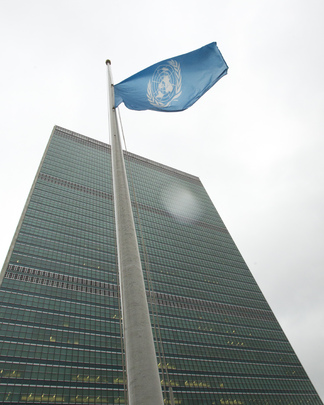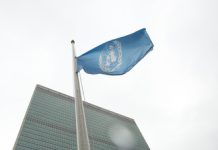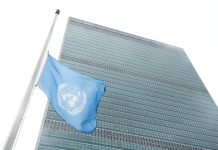Somalia declares drought emergency
Somalia is facing a worsening drought after four failed rainy seasons, leaving millions at risk of hunger and displacement, the UN relief coordination office, OCHA, warned on Wednesday. The government formally declared a national drought emergency on November 10th, appealing for urgent international aid.
Puntland is among the hardest-hit areas, with nearly one million people in need, including 130,000 in life-threatening conditions. A UN assessment mission to Bari and Nugaal regions earlier this month found communities struggling with severe water and food shortages, dried-up wells, abandoned villages, and rising displacement, affecting mostly women and children.
Families are relying on expensive trucked water, while humanitarian assistance has sharply declined. Somalia’s 2025 Humanitarian Response Plan is only 23.7 per cent funded, forcing major cutbacks. The number of people receiving emergency food aid dropped from 1.1 million in August to just 350,000 this month.
At least 4.4 million people are projected to face acute food insecurity, meaning that livelihoods could be sacrificed in order to access food. 1.85 million children under five years-old are expected to suffer malnutrition through mid-2026. UN agencies warn that hot, dry conditions are expected to persist, worsening the crisis.
Ukraine: education under attack
In Ukraine, education continues to come under attack. More than 340 educational facilities have been damaged or destroyed so far this year, bringing the total to almost 2,800 since February 2022. The UN Children’s Fund, UNICEF, says the real number is likely even higher, as these are only UN-verified incidents.
UNICEF’s Ukraine Representative, Munir Mammadzade, stressed that during crises, education provides a lifeline and a sense of normalcy for children, supporting not only learning, but emotional well-being and access to other services.
Four point six million children in Ukraine face major barriers to learning, as they persist through a fourth academic year during the conflict. Many schools are closed due to hostilities or lack of shelters, forcing almost one million children to study exclusively online. Air raid alarms frequently interrupt classes, and constant disruption is taking a heavy emotional toll.
UNICEF and partners have helped more than half a million children access safe learning and catch up through remedial education. The agency says that protecting schools and children’s right to education during war is not optional, it is imperative.
Over 600 million children exposed to violence at home
Staying with UNICEF, the agency reports that more than one in four children, about 610 million worldwide, live with mothers who were physically, emotionally, or sexually abused by a partner in the past year. For these children, violence is part of daily life.
Exposure is highest in Oceania, sub-Saharan Africa, and Central and Southern Asia. UNICEF warns that even witnessing violence can cause long-term emotional and developmental harm, impacting children’s safety, learning, and mental health.
Globally, one in three women will experience violence in their lifetime, the majority, by an intimate partner.
The stress, fear, and instability at home can leave lasting psychological scars for children, affecting their trust in caregivers and shaping their future relationships. Many may struggle at school or face higher risks of experiencing or repeating violence later in life.
UNICEF is calling for stronger action, including survivor-centred services, prevention programmes, support for women- and girl-led organizations, and efforts to challenge harmful social norms.
Ileana Exaras, UN News
Source of original article: United Nations (news.un.org). Photo credit: UN. The content of this article does not necessarily reflect the views or opinion of Global Diaspora News (www.globaldiasporanews.com).
To submit your press release: (https://www.globaldiasporanews.com/pr).
To advertise on Global Diaspora News: (www.globaldiasporanews.com/ads).
Sign up to Global Diaspora News newsletter (https://www.globaldiasporanews.com/newsletter/) to start receiving updates and opportunities directly in your email inbox for free.


























